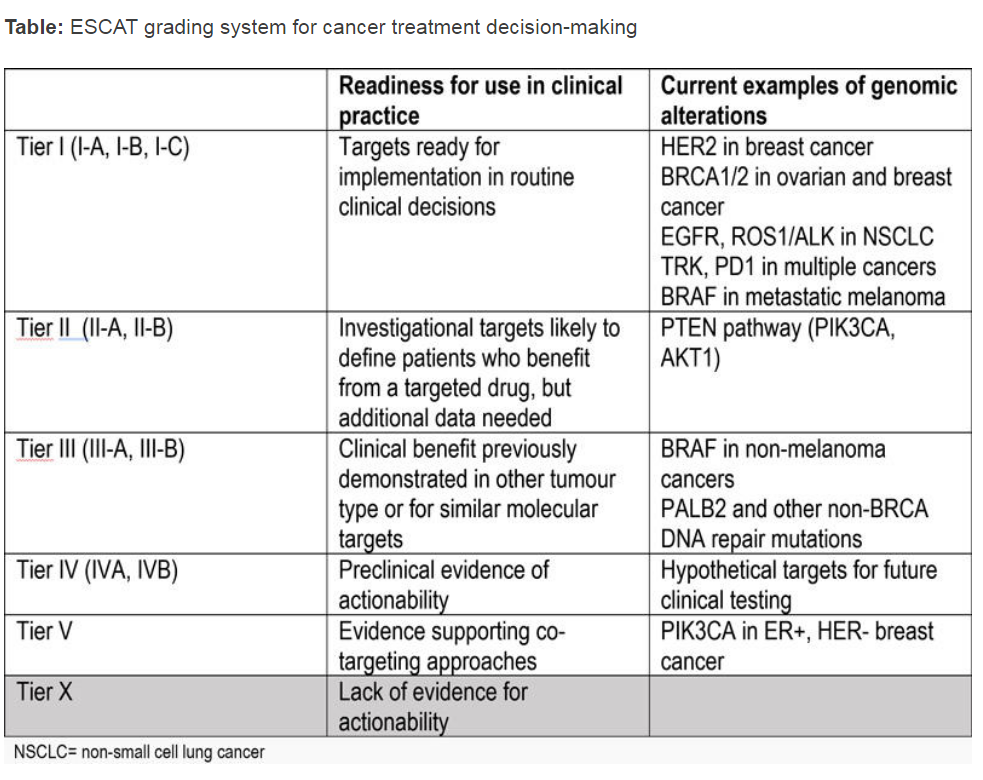
A new scale for tumour DNA mutations which will simplify and standardise choices for targeted cancer treatment has been agreed by leading cancer specialists in Europe and North America. The scale, called ESCAT (ESMO Scale for Clinical Actionability of molecular Targets), is published this week in the Annals of Oncology. It aims to optimise patient care by making it easier to identify patients with cancer who are likely to respond to precision medicines, and help make treatment more cost effective.
The new grading system classes alterations in tumour DNA according to their relevance as markers for selecting patients for targeted treatment, based on the strength of clinical evidence supporting them (Tier I-V, Table 1). It is the first time that a classification has been developed that is relevant to all potential targeted cancer medicines, not just those that have been approved for use by national regulatory bodies. The classification also enables mutations to be upgraded or downgraded in response to newly available data.

